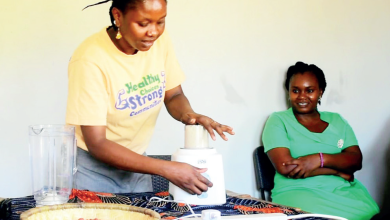Csat, coalition strengthen right to food accountability
he Mangochi District Right to Food Coalition has adopted a series of resolutions aimed at enhancing citizen participation and accountability in the delivery of essential public services that support the realization of the right to food.
The resolutions were agreed during a three-day advocacy strategy development workshop organised by the Centre for Social Accountability and Transparency (Csat) in Mangochi.
The workshop formed part of Csat’s “Right to Food in Africa: From Policy to Plate” project, implemented with support from the Federal Ministry for Economic Cooperation and Development (BMZ) through Welthungerhilfe (WHH).
Participants, drawn from the Mangochi Right to Food Coalition—an affiliate of the National Right to Food Coalition—identified the absence of institutionalized social accountability mechanisms as a major factor contributing to poor service delivery, corruption.

They also condemned mismanagement of resources meant to advance food and nutrition security.
The civil society representatives noted that rights holders, especially women, youth, persons with disabilities, smallholder farmers, the elderly and the ultra-poor, remain unable to effectively hold duty bearers accountable for the management and delivery of essential services.
This they said, has resulted in widespread service gaps and a loss of public confidence in local governance structures.
In response, the coalition resolved to institutionalize a social accountability mechanism within local governance structures to promote transparency, empower citizens and ensure more efficient delivery of services linked to the right to food.
Project field officer for Csat Jacob Phiri expressed optimism that the resolutions mark an important milestone toward enforcing the right to food in Mangochi and beyond.
“We believe that by putting these mechanisms in place, citizens will have stronger platforms to demand accountability and better service delivery. This is key to ensuring that the right to food moves from policy to actual practice,” Phiri said.
One of the participants, Enock Chandamile, said the resolutions provide a practical roadmap for empowering communities to engage local authorities on issues affecting their livelihoods.
“Once implemented, this framework will enable community members to hold duty bearers accountable and ensure that resources meant for public welfare are properly utilised,” he said.
The Mangochi Right to Food Coalition reaffirmed its commitment to work closely with CSAT, district authorities and community leaders to advance the implementation of the resolutions.
The development forms part of ongoing national efforts to translate Malawi’s constitutional commitment to the right to food into tangible community action through inclusive governance and social accountability initiatives.





